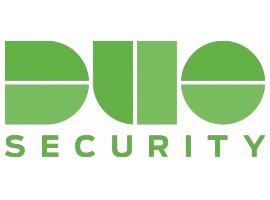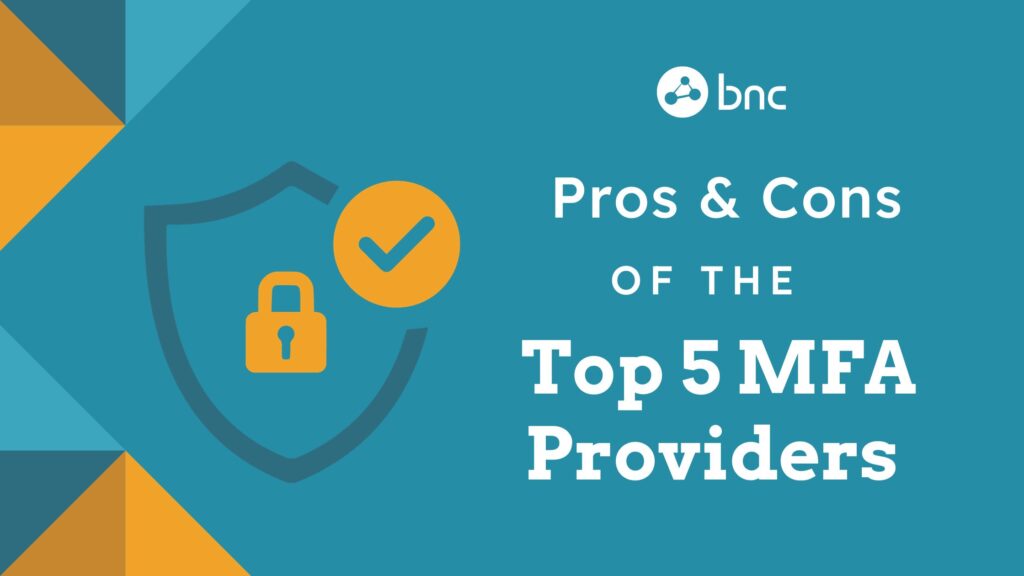
Multifactor authentication (MFA) is a common security designed to protect account access by requiring users to provide multiple forms of authentication before gaining access. The old approach was just passwords, but that can often be easily hacked and accessed through simply having the password, which hackers can acquire through the dark web or other means. MFA prevents phishing and other brute force attacks, which are on the rise. It mitigates these risks through an extra layer of security through verification beyond passwords.
MFA can generally be divided into something you know (passwords), something you have (a mobile number, smart card, or another email), or something you are (biometric data like fingerprints or facial recognition). MFA simply combines these for added security to verify the person is who they say they are, making it harder for hackers to access accounts since it’s far more difficult to have access to several of these avenues at once. MFA strengthens the security posture of businesses while using online platforms, reducing the likelihood of unauthorized access. MFA is a solid, proactive tactic that is relatively uncomplicated if users are aware of its mechanics and purpose, and it can be a great first line of defense to put in place.
To help businesses make informed choices, we’ve compiled a list of the top 5 MFA providers, along with their respective pros and cons.
Duo Security, now part of Cisco, is an MFA solution that uses multiple authentication methods like mobile push notifications, SMS, phone calls, hardware tokens, and biometrics to make sure the users are who they say they are before having access to sensitive apps and data. Duo touts an easy to use platform with excellent user experience through a more seamless authentication process. Duo has been shown to be a better choice for smaller organizations due to it getting fairly complicated and technical quickly with larger organizations that have multiple teams and more complicated layers of access to data.
Pros:
- User-Friendly: Duo Security is known for its user-friendly approach.
- Versatile Authentication Methods: Offers various authentication methods, including push notifications, SMS, phone calls, and hardware tokens.
- Strong Integration: It boasts strong integration capabilities, making it an ideal choice for businesses looking to enhance security without causing inconvenience to users.
Cons:
- Pricing: Costs may vary depending on the number of users and features required.
- Complex Implementation: Larger organizations may find the initial setup and integration complex.
Okta MFA is a cuttig-edge MFA solution that claims to improve on security while having a more user-friendly interface and approach. There is a concern among business owners that MFA tools might be too complicated or technical for every employee to use. If it’s daunting or breaks easily, employees may not use it, or the likelihood of error might increase, defeating the purpose of a security tool. Since MFA tools are made for everyone (non-technical employees who don’t need to understand the ins and outs of IT security), user friendliness becomes a strong selling point for business’ MFA solutions. Okta is flexible, offering a range of methods like push notifications, SMS, email, biometrics, and hardware tokens. This level of versatility lets businesses adapt their security to meet their needs and preferences. Okta can seamlessly integrate with systems as well, being part of their user-friendly brand. Overall, Okta stands as a solid security tool that ensures security for sensitive data and resources for companies of all sizes. Downsides for Okta are its price, the complexity of setup and use, and recent security breaches however.
Pros:
- Adaptive MFA: Okta’s adaptive MFA leverages contextual information to make authentication decisions.
- Comprehensive Identity and Access Management: Okta provides comprehensive identity and access management solutions.
- Strong Integration: Okta offers strong integration capabilities for streamlined implementation.
Cons:
- Cost: Okta’s feature-rich offerings may come at a higher price point.
- Learning Curve: Some users may require time to adapt to the system’s comprehensive features.
- Recent Security Breaches: late in 2023 there was a major security breach on the Okta platform that users should be aware of.
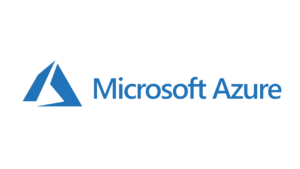
Microsoft Azure MFA is a security solution connected to their cloud platform. Azure MFA simply requires verification beyond usernames and passwords with the usual routes of verification like SMS, email, and biometrics. There is an advantage for users of Azure to include this tool since it’s tailor made for that platform. Azure MFA stands apart from the crowd because it was made to be a part of the entire Microsoft ecosystem, making it a very convenient option for users of Azure Active Directory and other MS services. Azure MFA works well with either cloud-based or on-premises applications, and is known to be user-friendly, which is a concern for some business owners. A downside to Azure MFA is its costs. Depending on the amount of data, costs can get pretty big and turn off budget conscious businesses. Also it may not be a great option for platforms that aren’t on Microsoft.
Pros:
- Integration with Microsoft Ecosystem: Seamless integration with Microsoft services.
- Versatile Authentication Options: Offers various authentication options suitable for Microsoft-centric organizations.
- Reliability: A well-established solution with a track record of reliability.
Cons:
- Limited Cross-Platform Support: Primarily suitable for businesses deeply integrated into the Microsoft ecosystem.
- Cost Considerations: Costs may add up for larger organizations with extensive user bases.
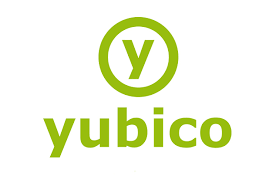
YubiKey (from Yubico) is a highly secure and versatile hardware-based authentication solution, making it unique among the offerings mentioned in this article. Removing the cloud access option, something to be said for physical hardware security keys where someone must be in that physical location to access data. YubiKey uses smal USB or NFC devices that generate one-time passcodes which gets rid of the need for passwords and usernames, offering a higher level of security. Compatibility might be a concern but it can work with a fairly wide range of apps, including online services, operating systems, and enterprise solutions. Its strength is also a big weakness: being physically present to unlock certain data might pose a major inconvenience to businesses that are heavily remote.
Pros:
- High-Level Security: YubiKey is known for its strong security features.
- Simplicity: The use of hardware tokens through USB and NFC-enabled devices makes it simple and reliable.
- Cross-Platform Support: Compatible with various platforms and services.
Cons:
- Hardware Dependency: Users must carry a physical device for authentication.
- Initial Costs: The procurement of hardware tokens can be an initial investment.
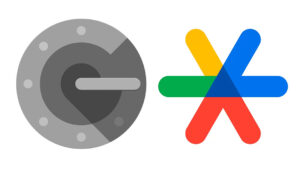
Google Authenticator is a powerful security feature that adds an extra layer of protection to your online accounts. This app, available on both Android and iOS, generates time-based one-time passcodes (TOTPs) that users must enter alongside their regular passwords during login. It being time-sensitive adds an extra layer of security since codes will expire, which can be a concern for some MFA tools. Even if a password is compromised, the requirment for a code reduces the risk of hacking. Even more appealing, Google Authenticator works well with Gmail but also is completely free, which is something more cost-conscious business owners will like.
Pros:
- Simplicity: Google Authenticator provides a straightforward method for generating one-time passcodes.
- Cross-Platform Support: Widely supported across various platforms and services.
- Cost-Effective: Typically, there are no direct costs associated with using Google Authenticator.
Cons:
- Limited Features: Offers basic MFA features compared to some other providers.
- Limited Account Recovery: If a user loses access to their device, account recovery options can be limited.
Hopefully this list adds some clarity to the big MFA options out there. When businesses are on the hunt for better cybersecurity, an MFA tool is a great place to start. As listed above, choosing the right one is important due to concerns of company size, costs, and ease of use. Either way, sticking with an older model where data can be accessed simply through a username and password poses too many security risks. Companies are often no more than their data, and it needs protection.
Get In Touch With BNC
 If you’re looking to enhance your organization’s cybersecurity and you’re based in Denver, Dallas, or Austin, BNC is here to assist you every step of the way. Our IT Security experts are ready to help you make an informed decision on the right MFA solution tailored to your specific needs. Contact us today to strengthen your data security and protect your business from potential cyber threats. Your data’s safety is our priority, and we’re here to support you. Don’t hesitate to reach out and fortify your digital defenses with BNC.
If you’re looking to enhance your organization’s cybersecurity and you’re based in Denver, Dallas, or Austin, BNC is here to assist you every step of the way. Our IT Security experts are ready to help you make an informed decision on the right MFA solution tailored to your specific needs. Contact us today to strengthen your data security and protect your business from potential cyber threats. Your data’s safety is our priority, and we’re here to support you. Don’t hesitate to reach out and fortify your digital defenses with BNC.

